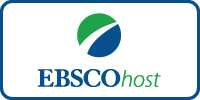The Impact of Corporate Income Tax on Capital Structure: Evidence from Serbian Food Industry
Abstract
Research Question: The aim of this paper is to present the effect of corporate income tax on capital structure in the food industry of the Republic of Serbia. Motivation: Based on the empirical results of Moradi & Paulet (2018) and Kuc & Kalicanin (2021), the author's aim of the research conducted in this paper is to analyse the impact of corporate income tax on the capital structure in the Republic of Serbia as a developing country with an underdeveloped capital market and to support the results of this sporadically researched area of corporate finance in the Republic of Serbia. Idea: The author believes that by determining the optimal capital structure, it could be possible to reduce the burden of corporate income tax. Given that the food industry is one of the most significant and profitable industries in the Republic of Serbia, the results of this theoretical and empirical research would be of a great benefit to the local Tax Authority and to large taxpayers. Data: The research was conducted on a sample of 250 most active companies that operated within the food industry of the Republic of Serbia in the period from 2017 to 2019. The source of data for the purposes of this research are the official financial reports of companies registered with the Serbian Business Registers Agency. Tools: Elemental descriptive statistics techniques and panel regression analysis were applied throughout the data analysis. For the purpose of data processing the author used STATA statistical software. Findings: The results confirmed the existence of a negative and statistically significant relationship between tax savings based on depreciation costs and profitability on the one hand, and capital structure, on the other. Thus, the results indicate the need of profitable companies to use high depreciation costs to provide a reduced burden of corporate income tax with a capital structure shifted to accumulated own financial resources. In addition, the results of the regression model showed the absence of a statistically significant effect of tax savings based on interest costs on capital structure. Contribution: The contribution of this paper is reflected in additional support to existing discussions on impact of corporate income taxes on capital structure. Further, the paper contributes to business practice by determining how corporate income tax burden could be reduced by choosing optimal financial mix.

This work is licensed under a Creative Commons Attribution-NonCommercial-NoDerivatives 4.0 International License.

















